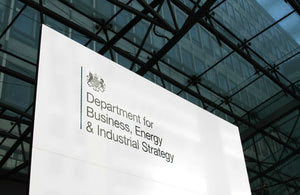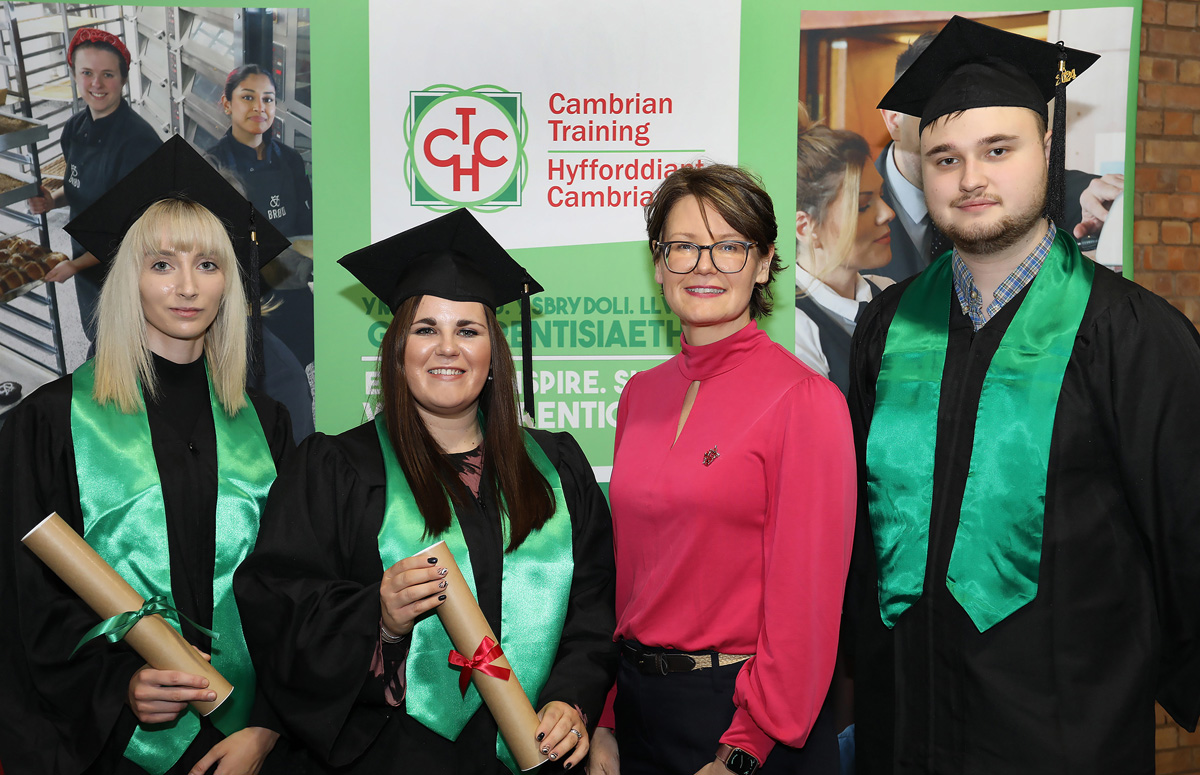People in London and Edinburgh set to be the first to trial self-driving vehicle services

Government support for the first UK trials of self-driving vehicle services.
- For the first time, the public will experience self-driving vehicle services thanks to government backing for 3 world-leading public trials by 2021
- pilots will include an autonomous bus service across the Forth Bridge from Fife to Edinburgh, and self-driving taxi services in London
- also announced is funding to further strengthen the environment for testing and development of self-driving technologies in the UK
- a year on from the launch of the modern Industrial Strategy, these projects will fulfil our ambition to see self-driving vehicles on UK roads
People in London and Edinburgh will soon be the first in the UK to experience self-driving vehicle services as part of 3 new public trials announced today by Business and Energy Secretary Greg Clark on a visit to Oxbotica, part of one of the winning consortia.
Once the preserve of science fiction and Hollywood films, the projects will allow the public to ride autonomous buses on a 14-mile route across the Forth Bridge, as well as book self-driving taxis to travel around parts of London.
The projects were selected following a competitive process and will share a £25 million government grant through the fourth round of the Connected and Autonomous Vehicles Intelligent Mobility Fund.
Each pilot combines the strengths of leading names from business, technology and academia – including Jaguar Land Rover, Addison Lee, Fusion Processing, Oxbotica, and the universities of Nottingham and the West of England – and support the government’s ambition to have self-driving vehicles on UK roads by 2021 through the modern Industrial Strategy and Future of Mobility Grand Challenge.
Business Secretary Greg Clark said:
Self-driving cars will revolutionise the way we move goods and people around the UK. These Industrial Strategy projects and investments are exciting examples of our long-term plan in action – ensuring we build on our strengths to reap the rewards as we accelerate towards our ambition to have autonomous vehicles on UK roads by 2021.
Autonomous vehicles and their technology will not only revolutionise how we travel, it will open up and improve transport services for those who struggle to access both private and public transport.
The UK is building on its automotive heritage and strengths to develop the new vehicles and technologies and from 2021 the public will get to experience the future for themselves.
All the projects will include social behavioural research to further explore how driverless technology can seamlessly integrate into society, with the findings applied to the development for future autonomous service models.
Future of Mobility Minister Jesse Norman said:
The UK is a world leader in transport innovation, and our work on the Future of Mobility Grand Challenge will ensure this long continues.
Automated driving technology is advancing rapidly, and the UK market for connected and autonomous vehicles is forecast to be worth up to £52 billion by 2035.
This pioneering technology will bring significant benefits to people right across the country, improving mobility and safety, and driving growth across the UK.
The Centre for Connected Autonomous Vehicles was established in 2015 to ensure the UK is a world-leader in the development and testing of self-driving technologies. £250 million, match-funded by industry, is being invested by the government, propelling self-driving technology in the UK.
To further strengthen the environment for testing and development of self-driving technologies, £18 million is also being awarded to four successful projects through the Meridian 2 and 3 competition. The Meridian 2 project will develop a digital platform to allow the exchange of data which technology developers and fleet operators can use to deliver better transport systems, while the Meridian 3 projects will focus on developing controlled test environments for highways, and public test environments for highways and rural roads.
Meridian CEO Daniel Ruiz said:
This is great news for the UK. Leading technology businesses from Japan, Germany and Spain, alongside homegrown innovators, are all investing significant sums in the UK to accelerate development of self-driving technologies. Their business decisions are an endorsement of our capabilities in this globally competitive sector. We’ve got the talent, the tools and strong government support to consolidate our world leading position in this transport revolution.
The Modern Industrial Strategy
Our modern Industrial Strategy, published last year, set out how the whole of the UK can build on its strengths, extend them into the future, and capitalise on new opportunities. Investing in science and research to keep us at the forefront of new technologies and the benefits they bring. Nurturing the talent of tomorrow – through more outstanding schools, world-leading universities and the technical skills that will drive our economy. And transforming the places where people live and work – the places where ideas and inspiration are born – by backing businesses and building infrastructure not just in London and the South East but across every part of our country.
It has been taken forward at pace over the last year:
- we will shortly publish the Business Productivity Review setting out ways to support improving productivity in many of our smaller businesses.
- we recently launched the Patient Capital Fund, which will invest £2.5 billion in our most innovative companies
- we have launched the £9 million Centre of Data Ethics and Innovation to act as an advisory body to government and regulators on ethics of data and its use, including for AI
- we now have the fastest growing infrastructure investment across the G7, providing £31 billion of additional capital spending to areas critical to improving productivity
- announced plans for a new spaceport in Sutherland
- opened the Faraday Institution in Oxford to keep the UK at the forefront of global battery manufacture
- opened the Transforming Cities Fund with billions of pounds ready to go to projects that drive productivity by improving connections within city regions
- furthered the connectivity of Britain’s towns, cities and rural areas, including the first allocations of the £190 million full-fibre challenge fund and £25 million for six 5G testbeds across the UK
- plans for new Technical Qualifications (T-Levels) and to transform the quality and quantity of apprenticeships
- 6 sector deals between government and industry have been published, from construction and automotive to nuclear and the creative industries, including £1.9 billion of investment in life sciences and £1 billion for artificial intelligence – they are not only about attracting investment and growth, but also ensuring we have the skilled, diverse workforce we need for the future
- innovative ideas that bring together world-class UK science, research and innovation to develop cutting edge products and services of the future have received an extra £1.7 billion making it the largest increase for 40 years (to £7 billion) – that includes £210 million to develop new medical diagnostic tools and treatments, £90 million for the food and farming industry to embrace agri-tech and £184 million for 41 UK universities to train the next generation of world-class scientists and engineers
In Budget 2018, £90 million investment was announced for future of mobility zones for trialling new transport modes and services.
Additional information on the projects funded through the Connected and Autonomous Vehicles Intelligent Mobility Fund:
Project CAV Forth
An Autonomous Bus Service from Park & Ride Across Forth Bridge to Edinburgh Park Train & Tram InterchangeFusion Processing (lead), Uni of West of Eng., Alexander Dennis, Edin. Napier Uni. & ESP Systex, Transport Scotland, Stagecoach.Total: £6.09 million, £4.35 million grant.
Project CAV Forth, led by Fusion Processing, will bring together organisations from across the UK to develop a high capacity Autonomous Bus Pilot Service across the Forth Bridge – a UNESCO World Heritage site. The project will convert five full-size Alexander Dennis single decker manually driven busses into autonomous vehicles. These self-driving buses will provide a service capable of carrying up to 42 passengers 14miles across the Forth Bridge to Edinburgh Park Train and Tram interchange. With buses every 20 minutes this could provide an estimated 10,000 weekly journeys, and support the case for rolling out similar services across the UK.
Project Apollo
Addison Lee (lead), DG Cities – Greenwich (site), Oxbotica, Immense Simulations, NominetTotal: £15.15 million, £8.84 million grant.
Project Apollo, led by Addison Lee with Oxbotica, Nominet, Immense Solutions and DG Cities, will develop and deploy 4 autonomous taxi pilot services, that increase in complexity and distance in Greenwich, London.
The project will build on the self-driving technology under development by Oxbotica as part of an existing Government-backed project called ‘DRIVEN’, combining 6 vehicles from that project with a further 9 new vehicles to provide the 4 pilot customer services: (i) feed North Greenwich Station (ii) a Hub-to-hub (no public transport) service (iii) a restricted on-demand service and (iv) a ‘go anywhere in borough service’. Once proven this project will lead to the launch of a public service in 2021 (or sooner) whilst bringing together leading UK organisations and helping strengthen the UK Connected and Autonomous Vehicle supply chain in the emerging global market.
ServCity
JLR (lead), Addison Lee, Uni. Nottingham, TSC, TRLTotal: £19.8 million, £11.15 million grant
ServCity project, led by Jaguar Land Rover with Addison Lee, Transport Systems Catapult, TRL and the University of Nottingham, will develop a mobility service based in London using 6 autonomous Land Rover Discovery vehicles. Building on expertise from the Government-backed UK Autodrive project, the consortium will test and further develop existing JLR sensing and autonomy systems in Coventry and the Midlands before deploying a pilot of a premium mobility service across four Greater London boroughs.
The project will also develop analytical models to understand and demonstrate the wider positive impacts of connected and autonomous vehicles on cities – from reduced air pollution to easing congestion.
- Additional information on the projects funded through Meridian 2 & 3:
Meridian 2
ConVEX – Connected Vehicle Data Exchange
Bosch (lead) with JLR as one of 7 partnersTotal: £8.4 million project, £4.4 million grant.
This project looks to accelerate the development of CAVs by aggregating data from a diverse range of sources and share this data via a commercial exchange platform.
Meridian 3
Physical testing infrastructure
- Stream 1 (controlled highways): Highway Intersections at Bruntingthorpe Proving Ground, led by IdiadaTotal: £8.4 million, £4.0 million grant
- Stream 2 (live highways and rural): Midlands Future Mobility: Rural and Highway Extension, led by Warwick Manufacturing GroupTotal: £11.3 million project, £7.9 million grant
- Stream 3 (controlled parking): Park-IT – Trusted Autonomous Parking, led by Horiba MIRATotal £4.3 million, £2 million grant











Responses